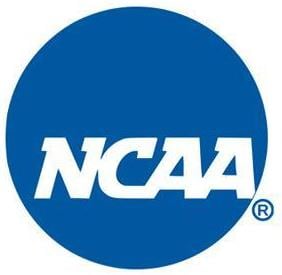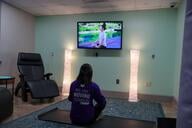You have /5 articles left.
Sign up for a free account or log in.
Chicago State men's basketball game from 2017
Getty Images via Icon Sportswire
 College athletics officials are considering the impact of COVID-19, or the coronavirus, on upcoming intercollegiate conference and tournament play, with some colleges even canceling scheduled basketball games on the West Coast.
College athletics officials are considering the impact of COVID-19, or the coronavirus, on upcoming intercollegiate conference and tournament play, with some colleges even canceling scheduled basketball games on the West Coast.
The National Collegiate Athletic Association announced it had convened a panel of health experts on March 3 to advise the association’s decision making during a week when the virus led to the cancellation of large national meetings and events. Conference tournaments for men’s and women’s basketball teams loom in the next two weeks. And the NCAA’s March Madness Tournament, which will involve competition between 68 Division I men’s basketball teams from across the country at arenas in 12 different states, begins March 17. The women's tournament begins March 20 and will involve 64 Division I teams competing first at various campuses, then at arenas in five states.
The tournament will be the largest scheduled U.S. sporting event since federal officials declared the coronavirus a public health emergency at the end of January, ESPN reported. The NCAA is considering “all circumstances” in its contingency planning for the virus, including the possibility of holding the March tournament without spectators, said Donald Remy, chief operating officer of the NCAA, in an interview with Bloomberg. The association will “first and foremost” prioritize the health and safety of athletes, fans and administrators, Remy said in a statement.
“The NCAA is committed to conducting its championships and events in a safe and responsible manner,” Remy said. “Today we are planning to conduct our championships as planned, however, we are evaluating the COVID-19 situation daily and will make decisions accordingly.”
The March tournament brings in more than 80 percent of the NCAA’s annual revenue, which totaled more than $1 billion in 2018. But Remy said a business interruption insurance policy would partially cover potential losses if changes had to be made, Bloomberg reported. The National College Players Association, which represents the interests of athletes, said in a statement that the NCAA and colleges should take precautions to reduce the risk of athletes contracting the virus.
“In regard to the NCAA's March Madness Tournament and other athletic events, there should be a serious discussion about holding competitions without an audience present,” the statement said. “The NCAA and its colleges must act now, there is no time to waste.”
Chicago State University on March 3 announced it was canceling scheduled basketball games over coronavirus concerns, in what ESPN reported was the first cancellation of a major U.S. sporting event due to the virus. Both Chicago State and the University of Missouri at Kansas City dropped men’s basketball games at Seattle University that had been scheduled for this week, Seattle said in a statement.
“We respect Chicago State and Kansas City's decisions and understand their concerns,” the statement said. “Seattle University is actively monitoring and responding to this rapidly evolving situation and continuing to follow the guidance of public health agencies and make decisions based on the most up-to-date information available. There has been no recommendation to suspend campus operations, including athletic contests, or restrict travel in the United States at this time.”
Chicago State also canceled a men’s basketball trip to Utah Valley University and the university women’s team’s home games against Utah Valley and Seattle, Sabrina Land, a university spokeswoman, said in a statement. None of the canceled games will be rescheduled.
The NCAA advises its member colleges to discuss travel and sports participation with their local health officials, said Christopher Radford, associate director of communications for the association.
“After reviewing publicly available information, the university has made the decision to restrict all travel for university-approved student and faculty study abroad, as well as scheduled games for university sporting events on the West Coast, including Washington State and Utah,” Land said.




